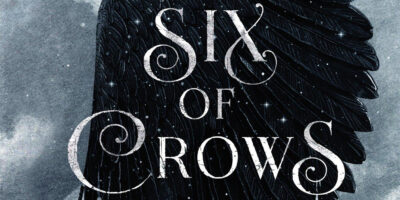-
Filter blog posts
Honor Roll titles
March 26, 2016
Interview with Leigh Bardugo about Six of Crows
March 26, 2016
Review: Six of Crows by Leigh Bardugo
March 14, 2016
Review: Odd and the Frost Giants by Neil Gaiman
July 3, 2015
Review: Far From You by Tess Sharpe
March 6, 2015
Why Pelvic Pain Is Absent from YA Fiction
July 11, 2014
Discussion: If We Could Tell an Author One Thing …
March 7, 2014
The Trope of Curing Disability
July 21, 2013
Review: Gathering Blue by Lois Lowry
July 3, 2013









